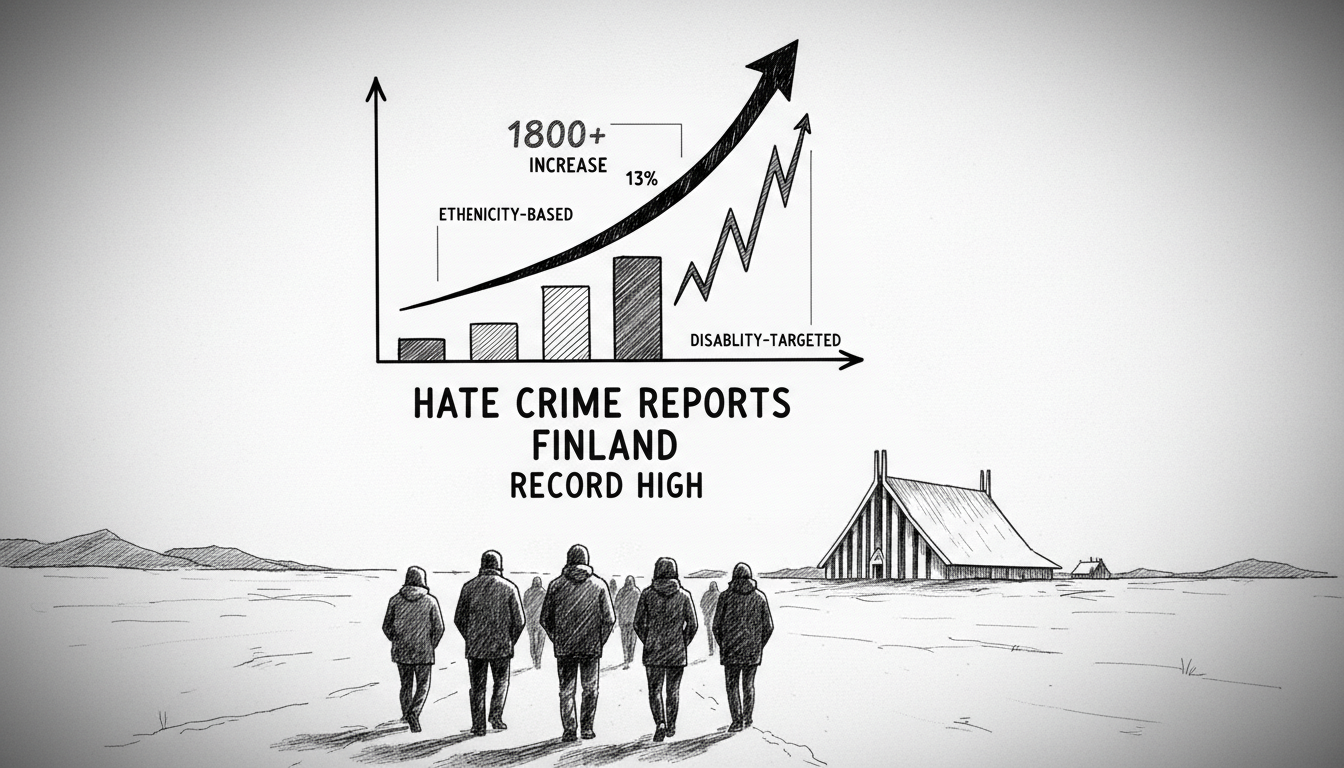Finland is experiencing an unprecedented surge in reported hate crimes, according to new data from the Police University College. The latest annual report reveals police recorded approximately 1,800 hate crime reports last year, marking a 13 percent increase from the previous year and the highest number since tracking began.
Hate crime reports have shown a consistent upward trend since 2020, with police data extending back to 2008. Most reports involved crimes suspected to target victims based on ethnic or national background. Physical assault was the most common type of offense in these cases.
Reports targeting ethnic or national backgrounds exceeded 1,200 incidents, representing a 12 percent annual increase. About 60 percent of victims in these suspected hate crimes were men. Syrian citizens faced the highest relative risk of becoming targets of ethnicity-based hate crimes.
Police classified approximately half of reported cases as hate crimes, showing increased use of hate crime classification compared to previous years. This suggests both rising incidents and improved police recognition of hate-motivated offenses.
Hate crimes targeting sexual orientation, gender identity, or gender expression increased by 12 percent, totaling about 240 reports. Disability-based hate crimes also rose substantially, jumping from 128 to 175 reports annually. In about half of disability-related cases, the suspect was previously known to the victim.
Researcher Jenita Rauta from the Police University College expressed concern about the developments. She said in a statement that the increase in suspected hate crimes against people with disabilities reflects broader societal polarization where vulnerable groups face targeting.
Hate crimes related to sexual identity and disability each accounted for roughly one-tenth of all reported hate crimes. Religious background motivated slightly under ten percent of reports, though these decreased by four percent from the previous year. Muslim individuals were most frequently targeted in religious-based hate crimes.
Most suspected hate crimes involved verbal abuse, threats, and harassment. The report specifically noted increases in these categories from the previous year.
Gender-based hate crime reports remained relatively low at just 11 cases last year. Crimes against men typically involved suspected assaults, while women more often faced suspected defamation.
The Finnish criminal code doesn't contain specific hate crime or hate speech offenses, but hate motivation serves as grounds for increasing punishment. The police data analyzed reports where officers documented suspicion of hate motivation.
This trend raises important questions about social cohesion in Finland. The consistent increase across multiple categories suggests deeper societal issues that extend beyond mere reporting changes. The disproportionate targeting of specific minority groups indicates where prevention efforts might be most needed.
International readers should understand that Nordic countries, despite their reputation for social harmony, face similar challenges with discrimination and hate crimes as other European nations. The Finnish approach of using hate motivation as an aggravating factor rather than creating separate offenses reflects a distinct legal philosophy that contrasts with some other countries' methods.

